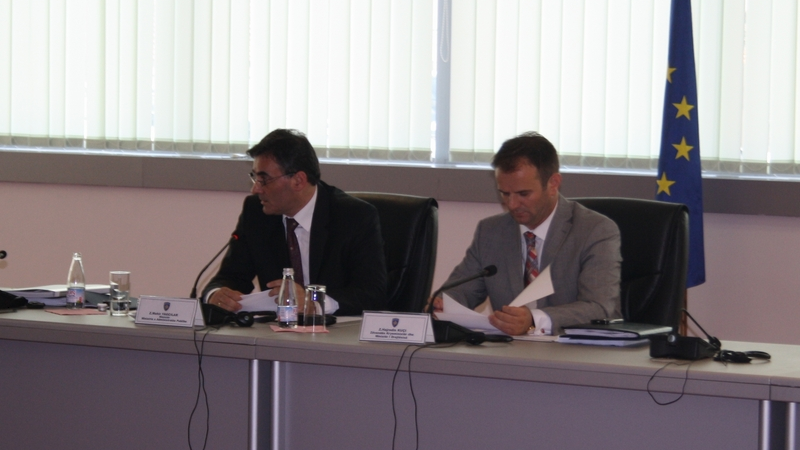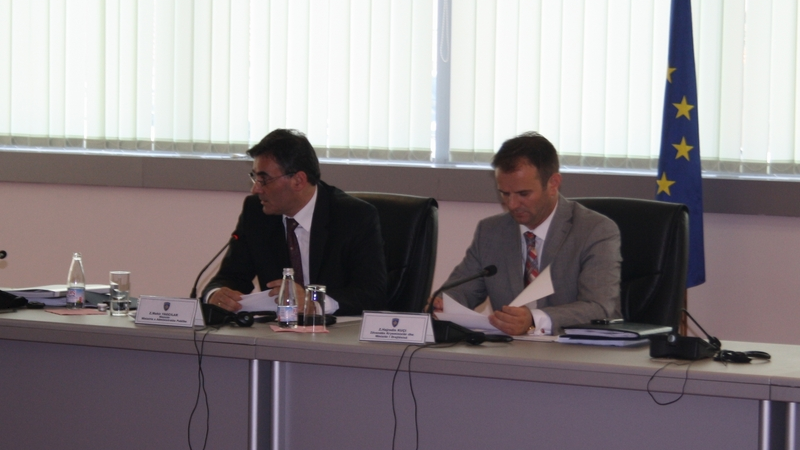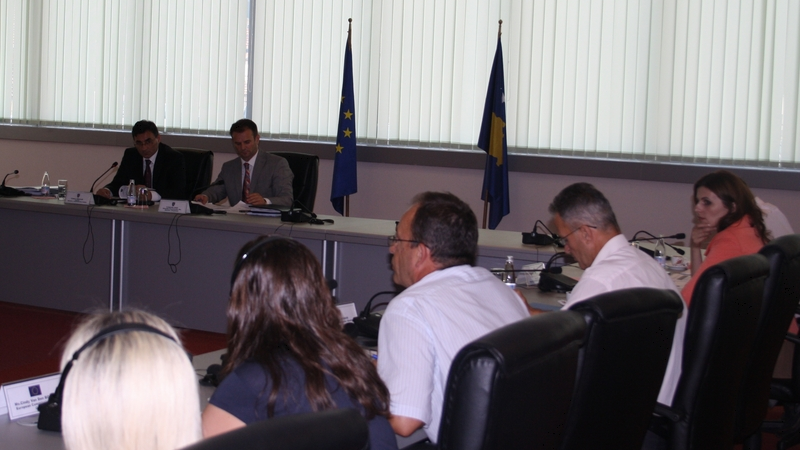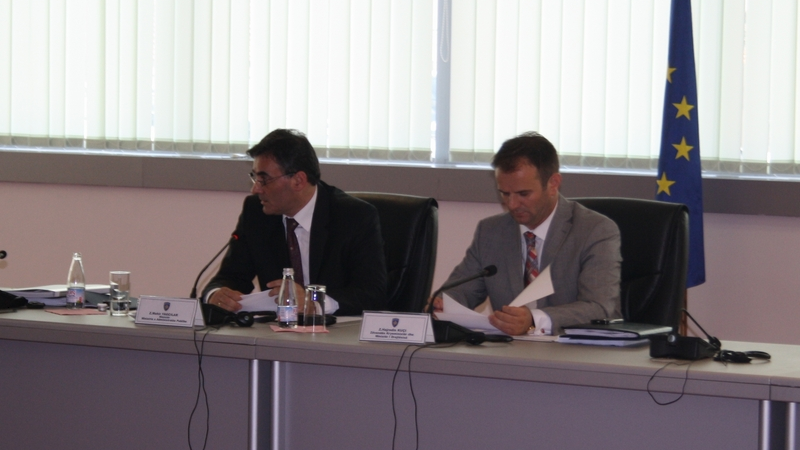

Speech of Deputy Prime Minister Kuçi in the Inter-ministerial Commission for Public Administration Reform
Deputy Prime Minister and Minister of Justice, Professor Dr. Hajredin Kuçi, today has participated in the regular meeting of the Inter-ministerial Commission for Public Administration Reform.
At this meeting, where participants were ministers, deputy ministers of the Cabinet and representatives of international institutions, the Deputy Prime Minister Kuçi said "As you are aware, in the overall spectrum of public administration reform we have approved a multitude of laws and documents of significant strategic development in this field. Without leaving aside the importance of laws and other strategic developing documents, where this time I would like to highlight the Law on State Administration, Civil Service Law, the Law on Salaries of Civil Servants, the Strategy for Public Administration Reform and the relevant Action Plan.
The laws in question contribute to the re-organization of our institutions, in redressing the functions of our administration staff and as a key element, through these laws, is enabled to have the same compensation for the same work.
In order to implement these laws and to translate written words into performed deeds, there is an inalienable need to draft and approve all the regulations deriving from them. Therefore, I invite the responsible institutions for drafting these laws, to raise the level of responsibility and to consider as an obligation the respect of the law.
Moreover, the Law on Salaries of Civil Servants regulates only a part of the salary system in the Republic of Kosovo, but most of the other categories of salaries for the public sector remain to be regulated by primary legislation. Hence, on this occasion, I invite the responsible institutions for the regulation of this field to draft proposals about modalities on harmonizing the salary system and propose a clear framework of this system in the Republic of Kosovo.
Also, besides the Strategy for Public Administration Reform, we have already approved the Action Plan and the Government has made a decision for the structures responsible for the implementation of these documents. Hereupon, I invite the responsible institutions for implementation of activities and constitution of the relevant working groups and subgroups – according to the government decision to start their work as soon as possible and results to be reported soon.
On the other hand, the compelling power that legislation and the government developing policies provide can be successful only if they are monitored, supervised and reported in an authentic and accurate way. They also may be postponed, when, in case of non-respect of our commitments, sanctioning measures proportionate to the damage caused are taken. That is why, to enable this process, the general area of inspection should be a no-compromise axis of our efforts for a state of law. The initial step in this direction has already been taken by initiating the drafting of the Draft Law on inspections and the Administrative Inspection. But, I am aware that the greatest work remains to be done – which means that it requires maximum commitment and dedication to finalize the drafting, approval and implementation in order to have a functional system for inspection and with regulatory premises for accountability.
But, of course, beside the control system we must record progress towards the principles of better regulation. This means moving from quantity to quality – through regulatory impact assessment, to move from the high cost to the lower cost – through rationalization of expenditures, moving from the long procedures to the shorter ones – through simplification of administrative barriers, and the effect of these measures to measure through the most sophisticated instruments (as for ex. CAF – Common Assessment Framework).
These additional tasks as well as many others which I did not mention, but will inevitably contribute to the modernization of our public administration, seek new responsibilities and consequently additional knowledge. To acquire this knowledge relevant trainings are needed. However, to make sure that this knowledge is absorbed from the persons responsible for the realization of their duties, it is imperative that trainings are made compulsory. Moreover, according to the trend of developments in the public administrations of European countries (the family that we intend to become a part of), raising the educational level of a category of our public servants turns out to be one of the major challenges that we will have to face in a not very distant future. Therefore, strengthening the role and capacity of the Kosovo Institute for Public Administration, is not only our wish but also our necessity.
Another aim towards reforming the public administration, not less important, is also the fighting of corruption and ensuring transparency and ethics in public administration. Currently, the Republic of Kosovo possesses legislation and institutions adequate enough to combat these phenomena. But parallel to the actual lighting of the reality we must work in a positive change of mentality. To do so, we shall commit that all public administration institutions draft plans of integrity. These plans will serve to assess the risk of corruption in advance, to identify it since the early stages and that the impact sanctioning is clear to all. Or, in brief, integrity plans will serve us more for prevention than consequence. "


